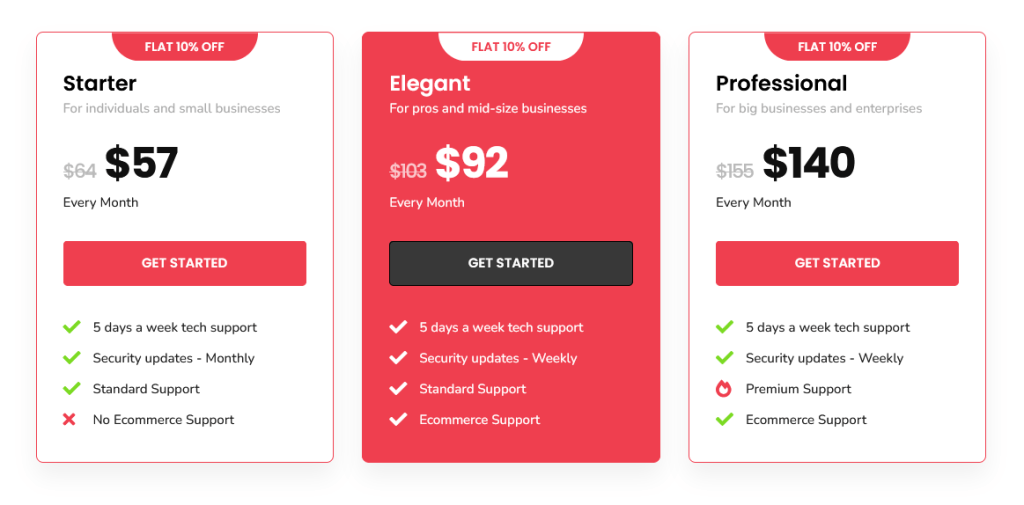In today’s online market, every business needs to have a strong website. Having a website as a home base is now a necessity, not just an option. With so many website-building tools like WordPress, Wix and Squarespace, it can be confusing to choose the one that’s best for you. This article will explain WordPress, Wix, and Squarespace in simple terms, helping you choose the best option for your organization.
Table of Contents
Getting to Know Your Website Requirements
Before investigating any platform comparison, it’s essential first to establish your website goals and the audience you want to reach the most.
- Website complexity: Are you considering a basic website that just provides information, or are you planning a more complicated online store?
- Design preferences: Do you have any specific design choices or a style guide that you want to follow?
- Technical expertise: Do you know how to code, or do you like using a simple drag-and-drop interface?
- Budget: What’s your budget for website design and development?
- Long-term goals: Where do you see your website going?
Ultimately, answering these questions will guide you toward choosing the platform that is in the best position to meet your needs.

WordPress: A Flexible Option
WordPress is the largest and most well-known website-building platform on the market, powering over 43% of the internet. Thanks to its open-source nature, WordPress provides the most flexibility and customization of any CRM.
Pros:
- Versatility: Suitable for a wide range of websites, from simple blogs to complex e-commerce stores.
- Customization: Extensive customization options through themes and plugins.
- SEO-friendly: Offers robust SEO tools and plugins to improve search engine visibility.
- Scalability: Can handle high traffic volumes and accommodate website growth.
- Large community: Extensive support and resources available.
Cons:
- Technical complexity: Requires some technical knowledge for setup and maintenance.
- Hosting and security: Requires separate hosting and security measures.
Ideal for: WordPress is ideal for businesses and individuals seeking maximum control over their website’s design and functionality.
Wix: The User-Friendly Alternative
Wix’s beginner-friendly drag-and-drop interface is its biggest draw, and with good reason. It’s user-friendly and offers a wide range of customizable templates and design features to help you create beautiful, professional-looking websites quickly.
Pros:
- Ease of use: User-friendly interface with minimal technical knowledge required.
- Design flexibility: Offers a variety of templates and customization options.
- Built-in features: Includes e-commerce, blogging, and marketing tools.
- Free plan: Provides a free option to test the platform before committing.
Cons:
- Limited customization: Not as much flexibility as WordPress in general for more advanced users.
- Potential for design limitations: Template-based designs may not be unique.
- Cost: Premium plans can be expensive for complex websites.
Ideal for: Small businesses and individuals looking for a quick and easy way to create a basic website.
Squarespace Artistic Elegance
Furthermore, Squarespace is best known for its beautiful, minimalistic designs — this platform gives any business a professional and sleek look. What makes it special is its great protection with remarkable flexibility and privacy options.
Pros:
- Beautiful templates: Offers a curated selection of stylish and professional templates.
- E-commerce functionality: Strong e-commerce features for online stores.
- Blogging platform: Excellent platform for content creation and SEO.
- User-friendly interface: Intuitive drag-and-drop editor for easy website building.
Cons:
- Limited customization: Not as much flexibility as WordPress in terms of customization (ideal for less technical users).
- Cost: Pricing plans can be higher compared to other platforms.
Ideal for: Businesses and individuals who prioritize design and aesthetics and are willing to invest in a premium platform.
Selecting the Appropriate Platform: Important Things to Note
The best website platform for you is the one that fits your needs and goals best. When weighing your options, look out for these red flags.
- Design flexibility: How much control do you need over your website’s design and layout?
- E-commerce features: Are you thinking about starting an online business—selling products or services directly through the internet?
- Technical expertise: How comfortable are you with website management and maintenance?
- Budget: What is your budget for website development and ongoing costs?
- Scalability: How do you envision your website growing in the future?
By weighing these considerations thoughtfully, you’ll be better equipped to choose the platform that truly fits your vision and sets you up for success in building your online presence.
Remember, there is no one-size-fits-all solution. It’s important to understand the strengths and weaknesses of each platform in order to make a sound ultimate choice.
Keeping Your Website Successful
Easily modernize your website with our maintenance-focused care plans, designed specifically for current websites that need regular maintenance, address updates, security improvements, and performance changes. Keep your site performing as strongly and as reliably as possible with little effort on your end. Your established online presence deserves attention. Choose our website maintenance services and experience worry-free!





